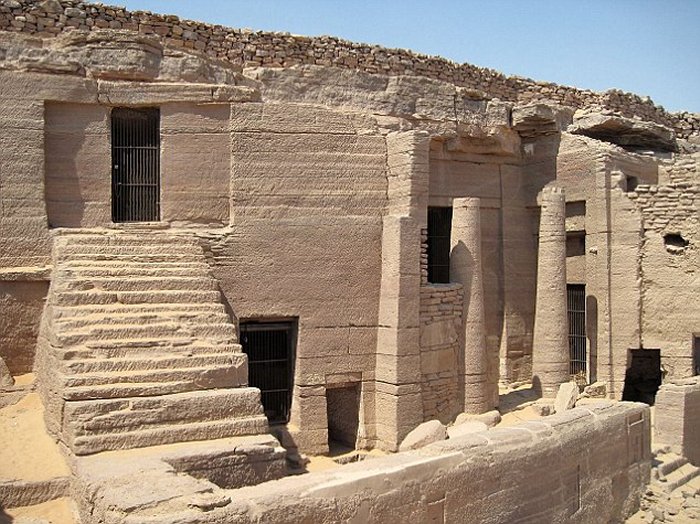MessageToEagle.com – Lady Sattjeni was an ancient Egyptian noblewoman who lived about 3,800 years ago. She was a daughter of a prince and the mother of two of the most powerful governors in the Middle Kingdom of Egypt. Now, the The mummified body of Lady Sattjeni has been found in the necropolis of Qubbet el-Hawa in southeastern Egypt.
The body was found in extremely good condition, wrapped in linen and deposited inside two wooden coffins.

“The discovery is of a historic importance because Sattjeni is one of the most important figures in the Middle Kingdom, being the mother of Heqaib III and Amaeny-Senb – two of the highest authorities of Elephantine under the reign of Amenemhat III,” Mahmoud Afify, head of the Ancient Egyptian Archaeology Sector at Egypt’s Ministry of Antiquities said.
Sattjeni’s family ruled Elephantine sometime around 1800 BC, and ranked just below the family of the ruling pharaoh.
See also:
Egyptian Queen Khentkaus III And Warning Of ‘Dark Period’ Of Ancient Egypt 4,600 Years Ago
Why Ancient Egyptians Used Pillows Made Of Stone
The Amarna Letters: Diplomatic Correspondence In Ancient Egypt
Archeologists also discovered remains of the delicate cartonnage funerary mask made from layers of linen or papyrus covered in plaster – were also found covering the face of the mummy.
Dr Alejandro Jiménez-Serrano, a researcher at Jaén University in Spain who helped conduct the excavation, said: “Lady Sattjeni was a key figure of the local dynasty.
‘She was the daughter of the nomarch Sarenput II and, after the death of all the male members of her family, she was the unique holder of the dynastic rights in the government of Elephantine.”
The team of Spanish archaeologists behind the discovery will now analyse her remains to figure out what she looked like, when she died, and what the most likely cause of death was.
“The body of Sattjeni was laying in her original position with some remains of the original covering of wrappings. The body is in excellent condition, which will permit our team of anthropologists to know more about her living conditions, age of death, pathologies, ethnic features,” the Ministry of Antiquities told the press.
MessageToEagle.com






